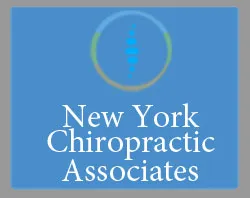- posted: Jul. 19, 2018
The Grain Brain Whole Life Plan
Dr. David Perlmutter Talks About His New Book
What’s good for your brain is good for the rest of your body too. That’s the simple-yet-radical message of Dr. David Perlmutter’s new book, The Grain Brain Whole Life Plan.
Dr. Perlmutter is the author of the New-York-Times-bestselling books, Grain Brain and Brain Maker, which explored how the food we eat directly affects the health of our brain and can contribute to dementia, ADHD, depression, and anxiety. These books have been translated into 28 languages — it’s clear, says Dr. Perlmutter, that they “seem to have moved the needle in terms of global understanding of the importance of these issues.”
With his new book, Dr. Perlmutter wants to help people turn his advice into action. The Grain Brain Whole Life Plan is a practical and empowering guide for achieving optimal health. Yes, it’s about preserving brain vitality, but his plan can also help you reduce your overall risk for chronic disease and lose weight.
In an interview with Dr. Perlmutter about his new book — here’s what he had to say:
What propelled you to write The Grain Brain Whole Life Plan?
My recent books, Grain Brain and Brain Maker explored the science of connecting things like sugar, carbs, gluten, and damage to our gut bacteria to brain disorders, weight gain, and a whole host of degenerative disorders. These books explored why these lifestyle choices were so threatening to health. My new book, The Grain Brain Whole Life Plan, is the deep dive into how — how to implement this exciting new information into a total lifestyle program to regain health and become powerfully resistant to disease.
So many people think of the brain as a separate entity from the rest of the body. Can you explain how a program that lowers the risk for brain ailments also improves overall health and may even help people lose weight?
Degeneration of the brain, like we see in Alzheimer’s and Parkinson’s disease, is caused by inflammation. It turns out that the origin of this inflammation is in the gut, and represents a manifestation of changes in the gut bacteria. So a program that is designed to keep the brain healthy and functional is actually a program that focuses on keeping the gut healthy. Chiropractic evaluation of the upper cervical spine to detect spinal compression is imperative to minimize mechanical brain stem. inflammation caused by spinal subluxation. This reduces inflammation, [which]…underlies virtually every degenerative condition in humans including diabetes, coronary artery disease, and even cancer. We now fully understand that inflammation is also the cornerstone of obesity. So attention to keeping the base of the neck free of compression and maintaining a healthy gut by reducing carbs, sugar, and gluten, while at the same time upping the consumption of healthful fats and fiber, will have wide-ranging benefits well beyond the brain.
You cover a few basic food rules in your new book, including the need to avoid gluten. Why is this important?
New research from Harvard School of Medicine has revealed that the intestinal lining becomes more permeable or “leaky” in all humans exposed to gliadin, a component of the more familiar protein gluten. Increased gut permeability paves the way not only for inflammation, but imbalance of the immune system as well. So I want our readers to know that all of us are “gluten sensitive,” and as such, we all need to be gluten free.
Judging by the 14-day meal plan you include in your book, it’s clear that getting healthy does not mean depriving yourself. What is your favorite recipe?
I really like the breakfast “porridge,” as well as all the egg recipes and the creamy cauliflower soup. Truthfully, I would be hard pressed to choose a favorite. They are all terrific, and so good for you.
In the introduction to the book, you talk about losing your father, who was also a neurologist, in 2015 to Alzheimer’s and also going through your own medical crisis. Can you explain what this taught you about having a healthy mind and a healthy body?
I’ve always been a bit out of step with my colleagues, both in medical school and in my medical practice. Like yourself, I’ve always known that there is so much more to the story than simply treating symptoms with remedies. I’ve recoiled at the notion that it is good enough to get rid of the smoke while ignoring the fire.
President Kennedy stated in his inaugural address, “The time to fix the roof is when the sun is shining.” I’ve adopted that statement as a mantra for the work that I do. Watching my father join the ranks of the 5.4 million Alzheimer’s patients in America was a powerful event for me as this is a disease for which there is no treatment, but at the same time is largely preventable. His illness and subsequent passing fully reinforced my commitment to sharing this important message. As to my own health event that I candidly describe in the new book, it served to clarify for me the incredibly powerful effect of stress, and then gratitude in terms of health and recovery from a potentially life-threatening event.
